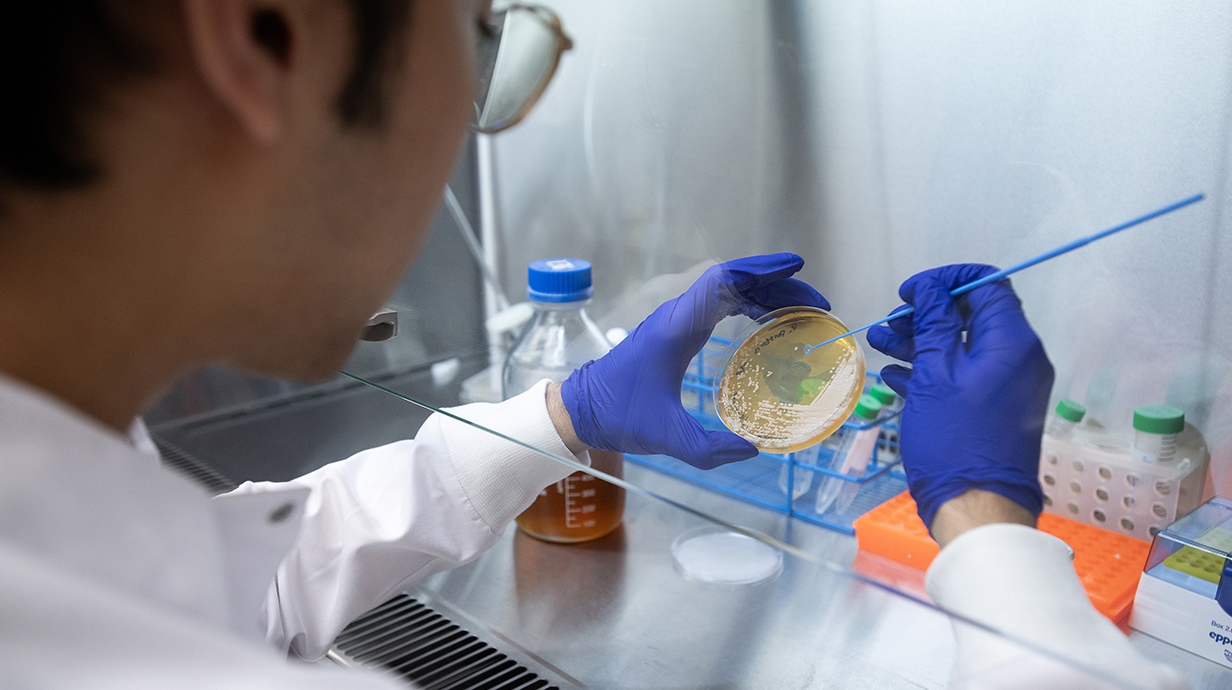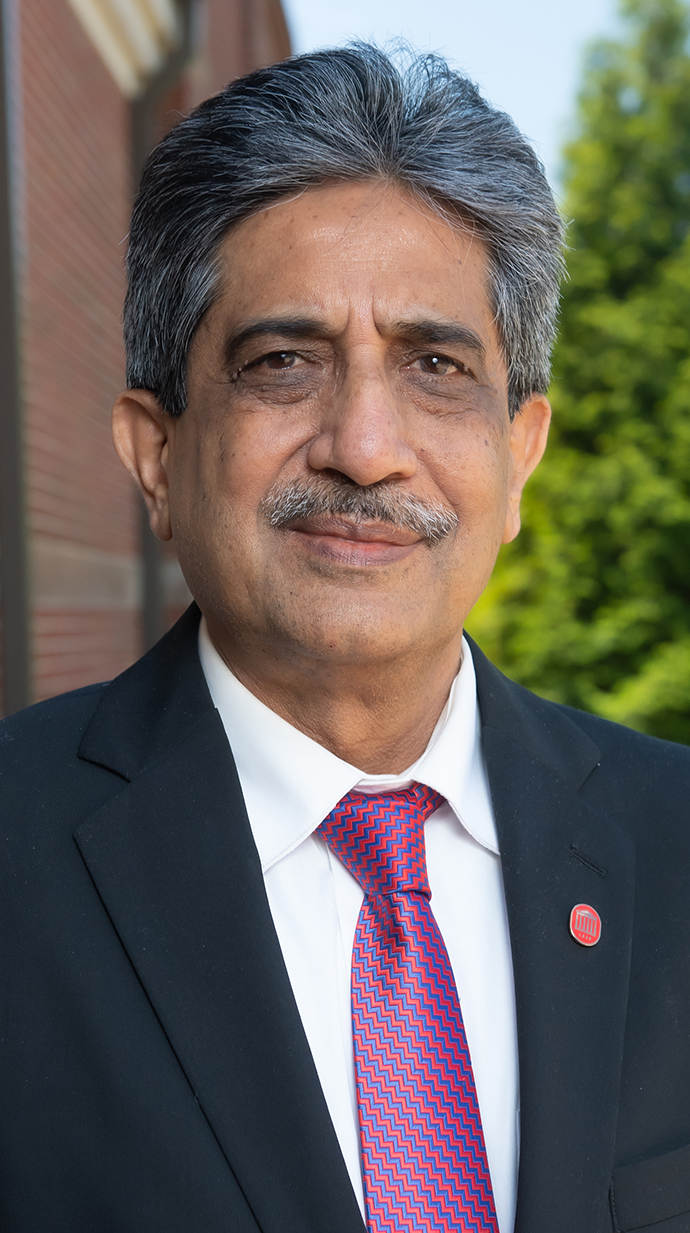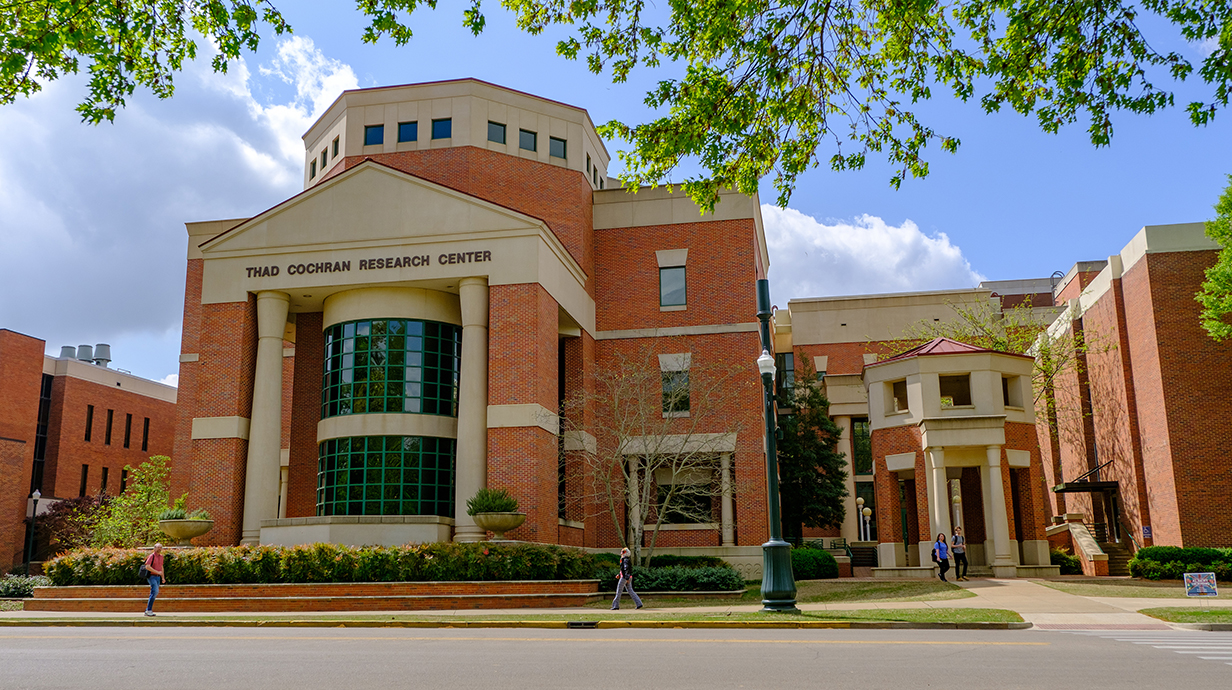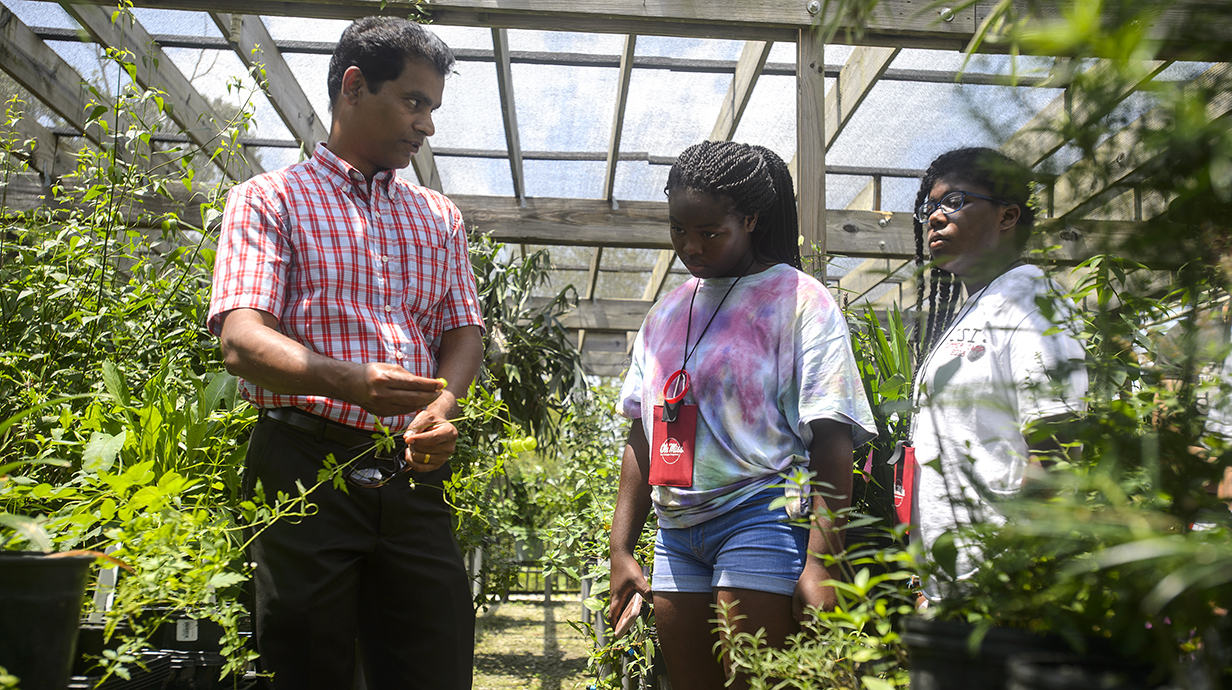Natural Products Center Marks 30 Years of Advancing Research, Safety
Ole Miss center has become recognized authority on botanicals, consumer safety

OXFORD, Miss. – Over 30 years of scientific discovery and consumer advocacy, the National Center for Natural Products Research has cemented itself as an international authority in botanical medicine and pharmaceuticals.
The University of Mississippi center, which opened its doors in 1995, is celebrating 30 years of studying plants, herbs and other natural medicines and dietary supplements with an eye for quality control and consumer health.

The opening lecture of the 23rd annual International Conference on the Science of Botanicals highlights the work and successes of the center.
"The vision then was to create a hub where the stakeholders – academics, government agencies and private entities – can work together to develop safer natural products," said Ikhlas Khan, center director. "That mission hasn't changed."
Over the last three decades NCNPR scientists have documented how a compound in blueberries can help reduce blood pressure and how turmeric and thyme can repel fire ants, among dozens of other discoveries.
"The center developed more than 200 analytical methods crucial for ensuring the quality and safety of supplements," said Amar Chittiboyina, the center's associate director. "This science directly led to the recall or ban of thousands of potentially harmful products, safeguarding consumers."
Products derived from plants, marine and other natural sources are playing an increasing role in everyday life. Public demand for natural cosmetics, preventative medicines and remedies has grown the industry from being valued at about $97 billion in 2007 to $302 billion in 2023.
The idea for the National Center for Natural Products Research came about in the early '90s as the United States was first navigating the potential benefits and dangers of the widespread use of natural products both in agricultural uses and as dietary supplements.

The National Center for Natural Products Research is headquartered in the Thad Cochran Research Center. Since its launch in 1995, the center has become a recognized international authority in botanical medicine and pharmaceuticals. Photo by Robert Jordan/Ole Miss Digital Imaging Services
The passage of the 1994 Dietary Supplement Health and Education Act broadened the scope of the center to include assessing the safety and medicinal value of natural products.
The Food and Drug Administration asked the NCNPR in 2001 to develop methods and standards to analyze dietary supplements sold in the United States. The center became an FDA Center of Excellence in 2006.
In 2023, the center capitalized on more than half a century's worth of expertise and study of cannabis to open the National Center for Cannabis Research and Education.
"The core mission is still the same, but we have been as agile and flexible as the time has demanded," Khan said. "As the use of natural products continues to grow, our role is to keep increasing research, education and outreach."
Scientists such as Bill Gurley work to ensure the natural products on the market represent themselves accurately and do what they claim to do.
"So, there's huge interest in these natural products," said Gurley, a principal scientist in the center. "What's different about botanical substances as opposed to conventional medicines is the way legislation is written. Supplement manufacturers don't have to do pre-market safety and efficacy studies.

A scientist from the National Center for Natural Products Research shows high school students some of the hundreds of plants being grown in the Maynard W. Quimby Medicinal Plant Garden. Alongside its research and consumer advocacy, the natural products center is dedicated to teaching new generations about the potential benefits and importance of botanicals. Photo by Marlee Crawford/Ole Miss Digital Imaging Services
"Most of these botanicals have been used for hundreds or thousands of years in different cultures, so they're assumed safe. But that's only true for the way they're traditionally used and traditionally prepared. That's not how we're taking them now."
While partnering with businesses and governmental agencies, the center also provides opportunities for students, said Donna Strum, dean of the Ole Miss School of Pharmacy.
"With the NCNPR being housed in the School of Pharmacy, our students get incredible access to the ongoing work at the center, but the real benefit is the experts," she said. "These are scientists that have national and international reputations, and our students get to collaborate and work with them on a daily basis.
"Not only does it mean they get to be involved in cutting-edge research, but the collaboration is really a boost to their careers."
As natural products and botanicals become more prevalent to treat and prevent illnesses, build immune systems and repel agricultural pests, the future of the center is bright, Khan said.
"Natural products have a role to play in our society," he said. "As long as the demand is there, NCNPR will be here to provide answers."
Top: A researcher cultures strains of yeast for drug research in the Thad Cochran Research Center. The National Center for Natural Product Research has been studying plants, herbs and other natural medicines for 30 years. Photo by Thomas Graning/Ole Miss Digital Imaging Services
By
Clara Turnage
Campus
Office, Department or Center
Published
April 07, 2025
